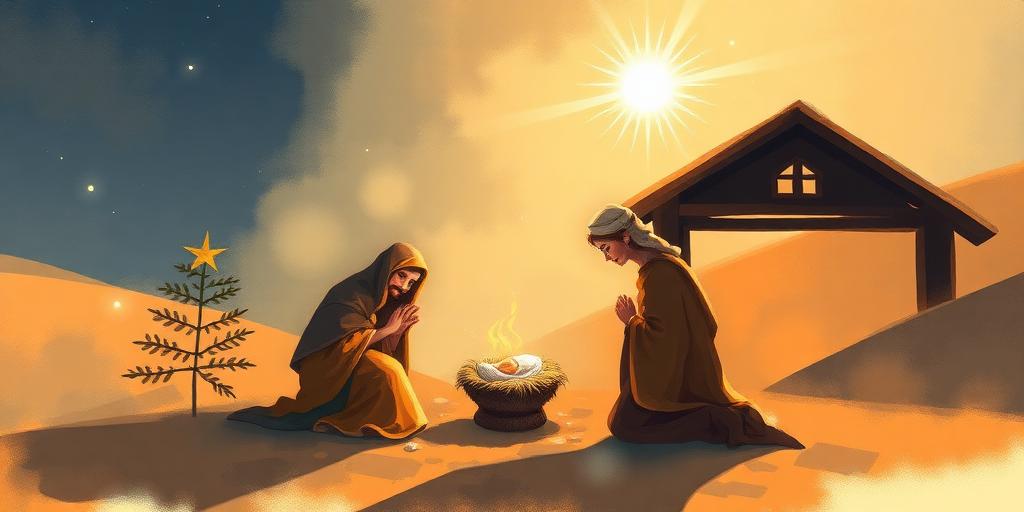Christmas, celebrated annually on December 25th, is widely recognized as a cultural and religious holiday. However, its essence extends far beyond festive decorations and gift-giving. At its core, Christmas commemorates the birth of Jesus Christ, who Christians believe to be the Son of God. This celebration is deeply rooted in Christian theology, marking the incarnation of God in human form, a pivotal event in Christian doctrine.
Historical Context: The historical context of Christmas is complex and multifaceted. While the Bible provides accounts of Jesus' birth, the precise date is not specified. The selection of December 25th is believed to be influenced by existing winter solstice festivals in various cultures, which were assimilated into Christian tradition over centuries. This convergence allowed early Christians to integrate existing celebrations, facilitating the spread of Christianity across different regions.
Religious Significance: The religious significance of Christmas centers on the belief that Jesus' birth fulfilled Old Testament prophecies, heralding a new covenant between God and humanity. The Nativity story, recounted in the Gospels of Matthew and Luke, describes the miraculous birth of Jesus to the Virgin Mary in Bethlehem. Key elements include the visitation of the angel Gabriel, the journey of Mary and Joseph, the birth in a manger, and the adoration of the shepherds and the Magi. These events are rich in symbolic meaning, representing themes of humility, divine intervention, and universal salvation.
Doctrinal Importance: The incarnation, the belief that God became flesh in the person of Jesus, is a cornerstone of Christian theology. It underscores the Christian understanding of God's profound love for humanity, expressed through the willingness to enter human experience and offer redemption from sin. Christmas, therefore, is not merely a historical commemoration but a celebration of a foundational theological truth that shapes Christian faith and practice.
Cultural Impact: Over time, Christmas has evolved into a global cultural phenomenon, influencing traditions, art, literature, and music. Many secular customs, such as decorating Christmas trees, exchanging gifts, and the figure of Santa Claus, have their roots in various cultural and historical influences, often predating the Christian celebration itself. These elements have been incorporated into the broader Christmas narrative, creating a rich tapestry of traditions that resonate with people of diverse backgrounds.
Contemporary Observance: In contemporary society, Christmas is observed in diverse ways, ranging from devout religious practices to secular celebrations centered on family, community, and goodwill. Churches hold special services, families gather for festive meals, and charitable activities are organized to support those in need. While the commercial aspects of Christmas have grown significantly, many individuals and communities strive to maintain a balance, emphasizing the values of generosity, compassion, and spiritual reflection.
Conclusion: In conclusion, Christmas is a multifaceted celebration that commemorates the birth of Jesus Christ and the profound theological significance of the incarnation. While its cultural expressions have evolved over centuries, the core religious essence remains a central focus for Christians worldwide. Understanding the true meaning of Christmas involves recognizing its historical roots, theological importance, and its enduring message of hope, love, and redemption.









